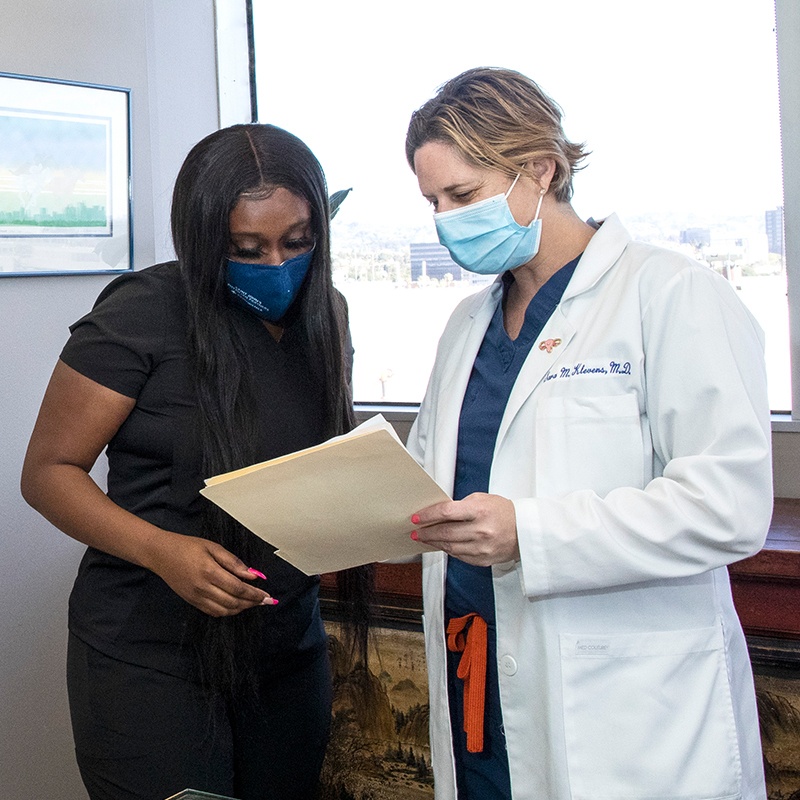Pap Test

Overview
What is a Pap Test?
A Pap test is a procedure done to test for cervical cancer. Finding the cancer early gives you a greater chance of a cure. A Pap test can also find abnormal cervical cells that can cause cancer in the future so that you and your doctor can develop a plan to have a Pap test more often to monitor your condition. Your Saint John’s Physician Partners gynecologist will discuss the frequency of having a Pap test with you, depending on your age, your overall health and whether you’ve had an abnormal test in the past.
Why
Why is a Pap Test Done?
A Pap test may be recommended as a routine part of your health and wellness checkups. It may be recommended more often if you have the following risk factors:
- Exposure to diethylstilbestrol (DES) before birth.
- Cervical cancer diagnosis.
- Pap test showing precancerous cells.
- You’ve been diagnosed with HPV, which is linked to increased risks to cervical cancer.
- HIV infection.
- If you smoke.

Risks
Pap Test Risks and Complications
A Pap test is a safe and very accurate procedure. While the procedure may be uncomfortable, it’s an important part your health and wellness.
Prep
Preparing for a Pap Test
To have the most accurate Pap test, your doctor will probably recommend the following preparations at least 48 hours before the procedure:
- Don’t have intercourse.
- Don’t use vaginal medicines, creams or jellies.
- Don’t insert tampons into your vagina.
- Don’t use powders or sprays near your vagina.
- Don’t douche.
- Schedule the procedure when you’re not having your period.

What to Expect
What to Expect During a Pap Test
A Pap test is done in your doctor’s office and takes only a few minutes. You’ll lie on your back on the exam table and your doctor will insert a speculum in your vagina so your doctor can clearly see your cervix. This may cause a feeling of pressure. Then your doctor will take samples of your cervical cells using a soft brush and a spatula, to be sent to the laboratory for analysis.
You can return to your normal activities without restrictions after your Pap test. If your Pap test comes back positive, it doesn’t mean you have cervical cancer, it means your doctor found abnormal cells. This could be caused by the human papilloma virus (HPV). The most common types of abnormal cervical cells are:
- Atypical squamous cells of undetermined significance (ASCUS), which are thin, flat cells that grow on the surface of a healthy cervix. This may be caused by HPV and you doctor will test for it.
- Squamous intraepithelial lesion may be precancerous and your doctor may order more tests to find out if they’re low-grade or high-grade. Low-grade lesions may not become cancer for years, while high-grade lesions may become cancer much earlier.
- Atypical glandular cells are cells that make mucus. If they appear abnormal, more testing will be needed to see if it’s cancer.
- Squamous cell cancer (adenocarcinoma cells) means that the cells in your cervix are very likely cancer.
To be certain of your diagnosis, your doctor may recommend a colposcopy and a biopsy. During a colposcopy procedure, your doctor will insert a speculum in your vagina and place a colposcope, which is a magnifying instrument that shines a bright light in your vagina in order to see your cervix. During the procedure, your doctor can then perform a biopsy to obtain tissue samples for further testing.
Specialists
















